
By: Kate Eldredge Date: 04/19/2017
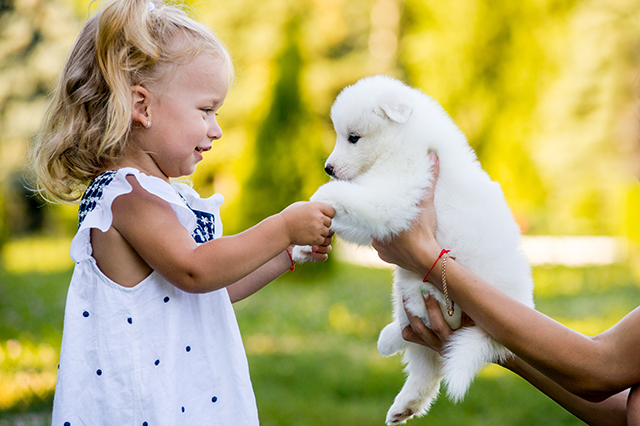
First off, congratulations on your new pooch! Whether you just picked up a puppy from a breeder or an adult dog from a shelter or rescue group, there will be a period of adjustment for everyone in the family. Here are some do's and don'ts and things to expect in the first 24 hours of your new adventure.
Plan a quiet day
Reserve at least the first day (ideally the first few days) for your new dog to get to know you and your family. Moving to a new home is a big transition, and even the happiest dog will experience some stress. Show her where the water bowl is and let her explore the house and yard at her own pace. If she's a puppy, take her outside frequently to get her started on housebreaking.
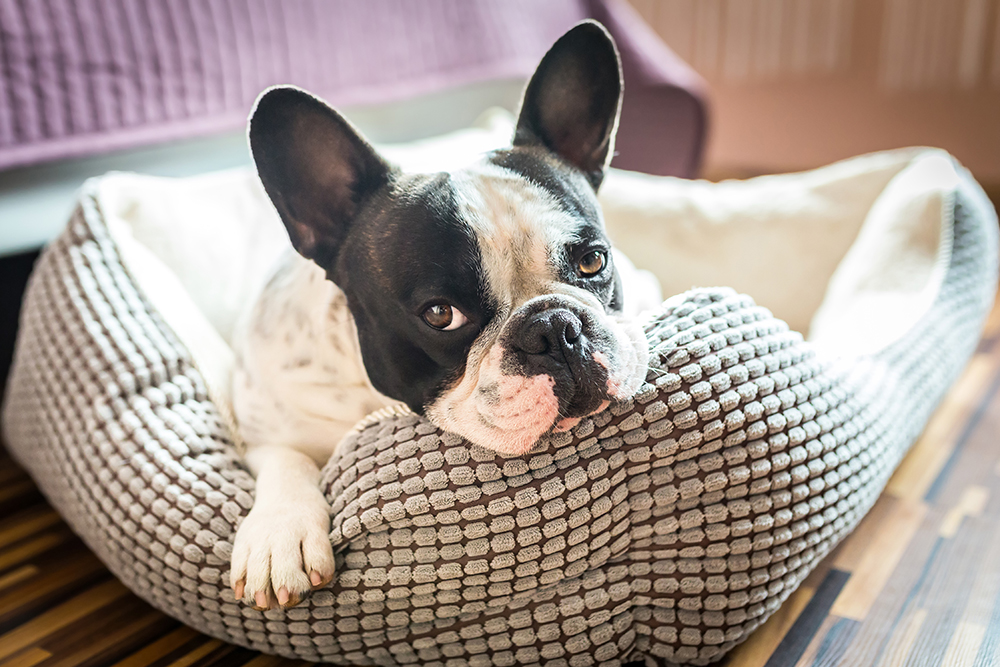 Make your new dog's first day a quiet one. Make your new dog's first day a quiet one.
|
Save visits from friends until your new dog has had a chance to settle into the pack and routine. Too many new people at once can be overwhelming. Delay unnecessary trips for the same reason. If you absolutely have to take a trip, it may be best to wait to pick your dog up until after that event - most breeders are more than willing to hang on to a puppy an extra week if needed.
Introduce other pets gradually
If you already have other pets, introduce them one at a time in a controlled setting. For dogs, it is often best to do the intro outside so that they are on more neutral ground – most dogs consider their house to be their territory, and may not be happy about a new dog waltzing in. Keep everyone on leash at first until they have settled, and then you can all go into the house together.
If your older dog(s) historically take a long time to warm up to other dogs, keep them separated with baby gates or the strategic use of crates. This will allow everyone to see and sniff each other without the risk of physical contact. After a day or two when the initial excitement has died down, then do a gradual intro.
For cats, keep your new pup on a leash to prevent chasing. If you have never had a dog before, your cat may be horrified and completely avoid contact with the pup. That’s ok! Don’t force the issue, just let them coexist and teach the dog to respect the cat. Make sure that any litterboxes are in rooms that the cat can access but the dog can’t, because clumping litter is very dangerous if eaten.
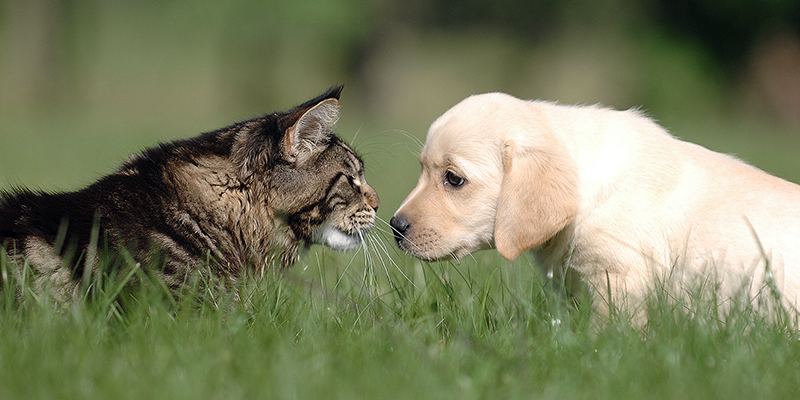 When it comes to other pets, don't rush things, and teach your new dog to respect cats! When it comes to other pets, don't rush things, and teach your new dog to respect cats!
|
If you have livestock or horses, keep your new dog on a leash around them until you have taught her appropriate manners around livestock and she has a solid recall. This process could take months depending on your dog’s personality.
Puppy-proof again
No matter how ready we think we are for a new addition, there are always things we forget or didn’t think would be an issue. Watch your puppy or new dog explore the house to identify potential problem areas that need to be addressed, such as tangled cords behind the TV stand that she can get stuck in or a low potted plant that she tries to chew.
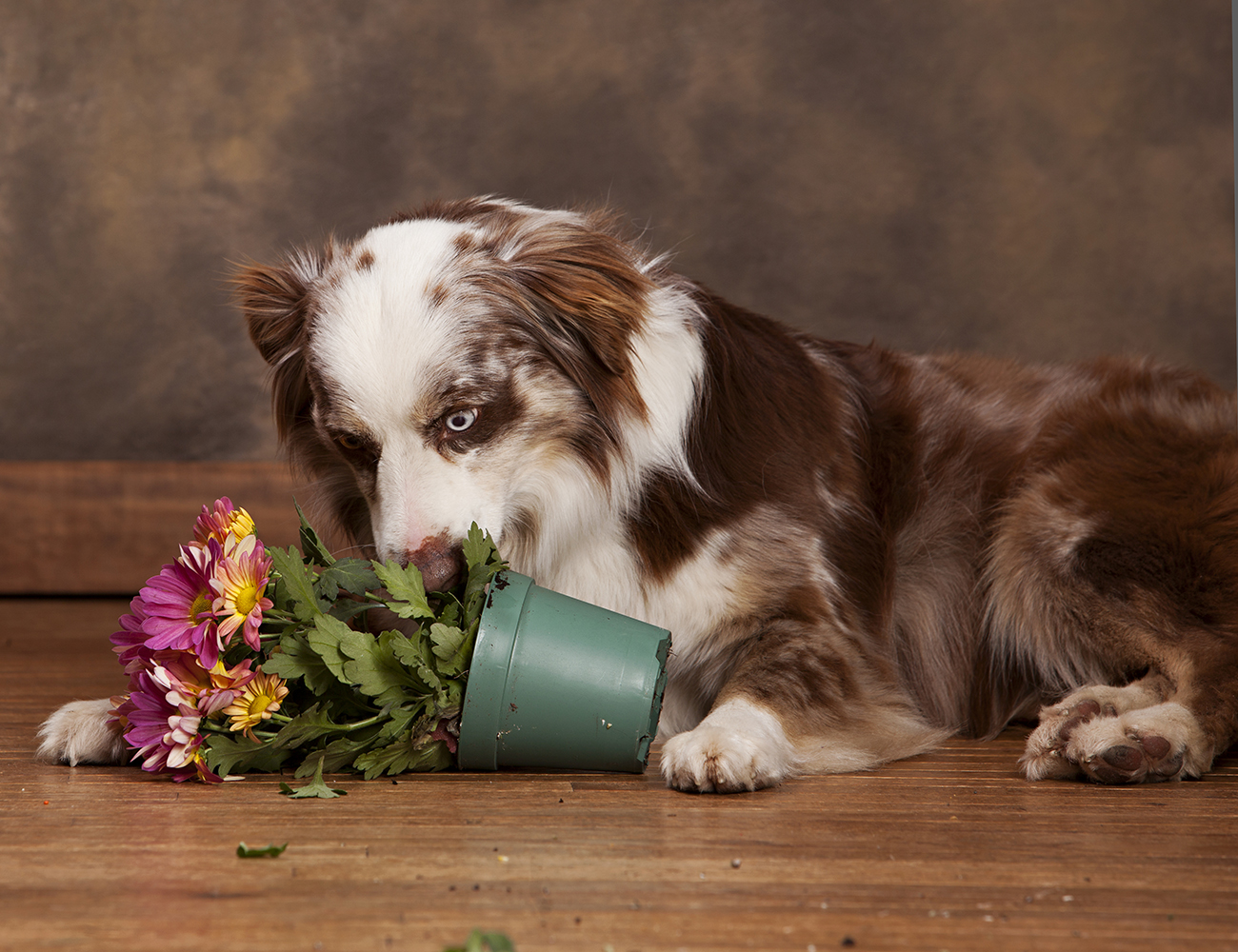 No matter how old your new dog is or how ready you think you are... puppy-proofing is important! No matter how old your new dog is or how ready you think you are... puppy-proofing is important!
|
Set up the crate
Set up your dog’s crate as a place for him to eat his meals and sleep in at night. Next to your bed is a great spot because it allows you to hear him fuss if he needs to go outside in the middle of the night. Crates are an invaluable tool for dogs of all ages. As you get to know your dog better or as your puppy grows up you will eventually be able to trust him loose unattended, but the crate is the way to go at the start of your relationship.
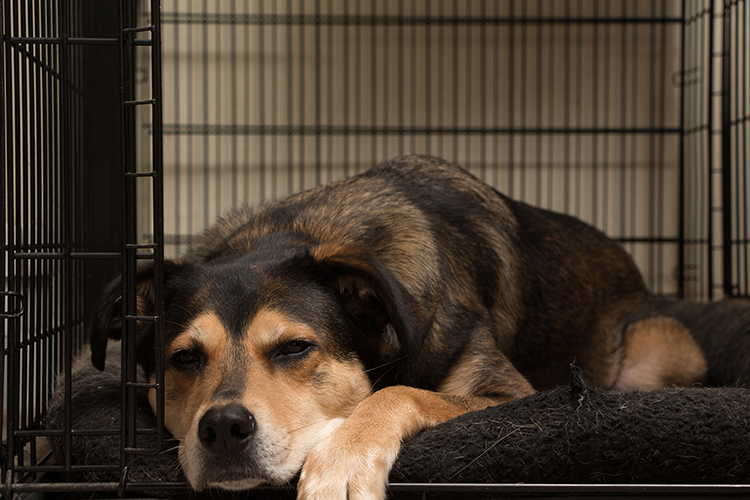 Your dog's crate is a safe, comfortable area as well as an invaluable tool! Your dog's crate is a safe, comfortable area as well as an invaluable tool!
|
Housebreaking
The main principle of housebreaking is that dogs are den animals and like to keep their living space clean. Your new dog needs to consider your entire house to be his home, which may not be the case on day one. Take him out for short walks periodically, especially if he is a puppy.
Adult dogs often come housebroken and will have an easy transition. That said, dogs who have been in a shelter for a long time and grown accustomed to peeing and pooping in their kennel runs may need some remedial housetraining. We will go over that in detail in a future article, but in short you will need to treat him like a puppy and be proactive about taking him outside before he realizes he needs to go. Then praise and reward for going to the bathroom outside.
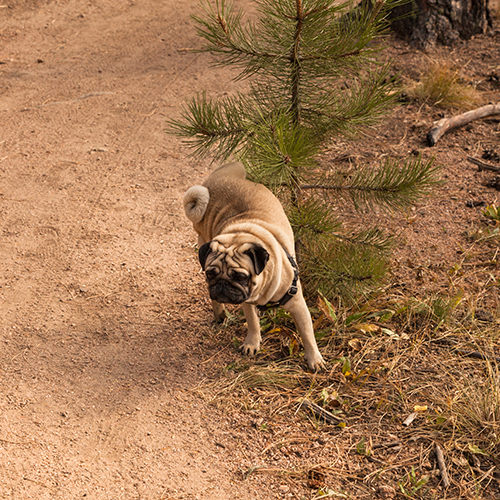 Housetraining is important for all new dogs, even adults. Housetraining is important for all new dogs, even adults.
|
Some breeders are now getting their puppies started on housebreaking before the age of 8 weeks. Ask your breeder what your puppy’s routine is and continue that system. One trick is if your pup had wood shavings in the potty area at the breeder’s home, place some shavings in the corner of the yard you want her to use. Newspaper can work this way too.
Bedtime
Expect some whining and fussing when you first put your dog to bed. Just like children, puppies can get over-tired and cranky, and older dogs may want to stay up later. Be patient and they should settle down within a few minutes. Make sure she has comfy blankets but isn’t too hot.
If your dog has a history of claustrophobia or panics when you put her in the crate, just shut her into the room with you to limit wandering. Crates should never be a source of fear, and you can work with a canine behaviorist to get through her anxiety or determine if a crate is just not a good option for her.
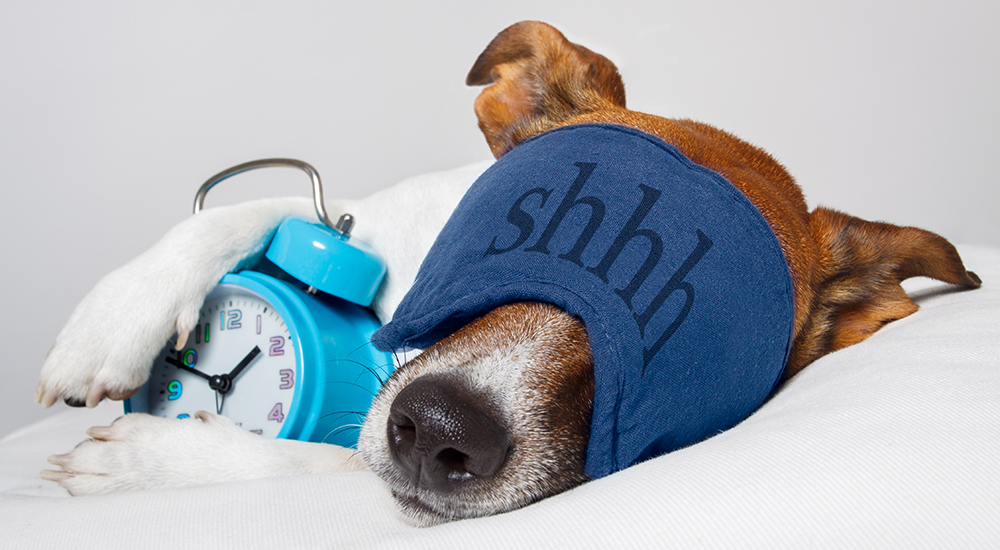
|
The first couple nights are often a bit rough, and your dog may wake you up to go outside in the middle of the night. Don’t panic! This should fade as she settles into your routine and learns when the last walk of the night is.
Have fun with your new dog!

About The Author
 Discover Animals is a web-based educational resource offered by the NAIA
Discover Animals is a web-based educational resource offered by the NAIA